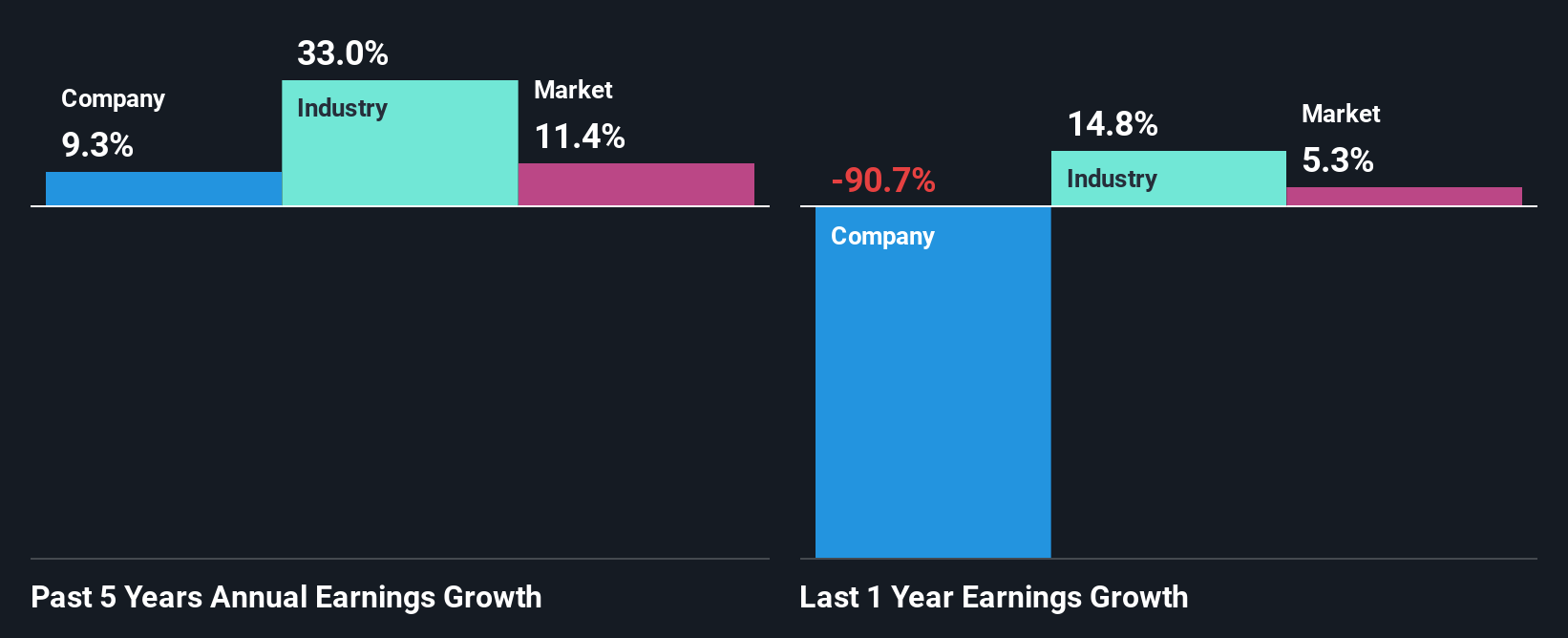Has Canterbury Park Holding Corporation's (NASDAQ:CPHC) Impressive Stock Performance Got Anything to Do With Its Fundamentals?
Canterbury Park Holding's (NASDAQ:CPHC) stock is up by a considerable 12% over the past week. Given that stock prices are usually aligned with a company's financial performance in the long-term, we decided to study its financial indicators more closely to see if they had a hand to play in the recent price move. Particularly, we will be paying attention to Canterbury Park Holding's ROE today.
Return on Equity or ROE is a test of how effectively a company is growing its value and managing investors’ money. In simpler terms, it measures the profitability of a company in relation to shareholder's equity.
How Do You Calculate Return On Equity?
Return on equity can be calculated by using the formula:
Return on Equity = Net Profit (from continuing operations) ÷ Shareholders' Equity
So, based on the above formula, the ROE for Canterbury Park Holding is:
1.0% = US$815k ÷ US$84m (Based on the trailing twelve months to March 2025).
The 'return' is the profit over the last twelve months. Another way to think of that is that for every $1 worth of equity, the company was able to earn $0.01 in profit.
Check out our latest analysis for Canterbury Park Holding
Why Is ROE Important For Earnings Growth?
So far, we've learned that ROE is a measure of a company's profitability. Based on how much of its profits the company chooses to reinvest or "retain", we are then able to evaluate a company's future ability to generate profits. Assuming all else is equal, companies that have both a higher return on equity and higher profit retention are usually the ones that have a higher growth rate when compared to companies that don't have the same features.
A Side By Side comparison of Canterbury Park Holding's Earnings Growth And 1.0% ROE
It is quite clear that Canterbury Park Holding's ROE is rather low. Not just that, even compared to the industry average of 19%, the company's ROE is entirely unremarkable. Although, we can see that Canterbury Park Holding saw a modest net income growth of 9.3% over the past five years. Therefore, the growth in earnings could probably have been caused by other variables. For instance, the company has a low payout ratio or is being managed efficiently.
As a next step, we compared Canterbury Park Holding's net income growth with the industry and were disappointed to see that the company's growth is lower than the industry average growth of 33% in the same period.

Earnings growth is a huge factor in stock valuation. The investor should try to establish if the expected growth or decline in earnings, whichever the case may be, is priced in. This then helps them determine if the stock is placed for a bright or bleak future. Is Canterbury Park Holding fairly valued compared to other companies? These 3 valuation measures might help you decide.
Is Canterbury Park Holding Using Its Retained Earnings Effectively?
Canterbury Park Holding has a low three-year median payout ratio of 16%, meaning that the company retains the remaining 84% of its profits. This suggests that the management is reinvesting most of the profits to grow the business.
Additionally, Canterbury Park Holding has paid dividends over a period of nine years which means that the company is pretty serious about sharing its profits with shareholders.
Summary
On the whole, we do feel that Canterbury Park Holding has some positive attributes. Namely, its respectable earnings growth, which it achieved due to it retaining most of its profits. However, given the low ROE, investors may not be benefitting from all that reinvestment after all. While we won't completely dismiss the company, what we would do, is try to ascertain how risky the business is to make a more informed decision around the company. Our risks dashboard would have the 3 risks we have identified for Canterbury Park Holding.
Have feedback on this article? Concerned about the content? Get in touch with us directly. Alternatively, email editorial-team (at) simplywallst.com.
This article by Simply Wall St is general in nature. We provide commentary based on historical data and analyst forecasts only using an unbiased methodology and our articles are not intended to be financial advice. It does not constitute a recommendation to buy or sell any stock, and does not take account of your objectives, or your financial situation. We aim to bring you long-term focused analysis driven by fundamental data. Note that our analysis may not factor in the latest price-sensitive company announcements or qualitative material. Simply Wall St has no position in any stocks mentioned.
 Wall Street Journal
Wall Street Journal